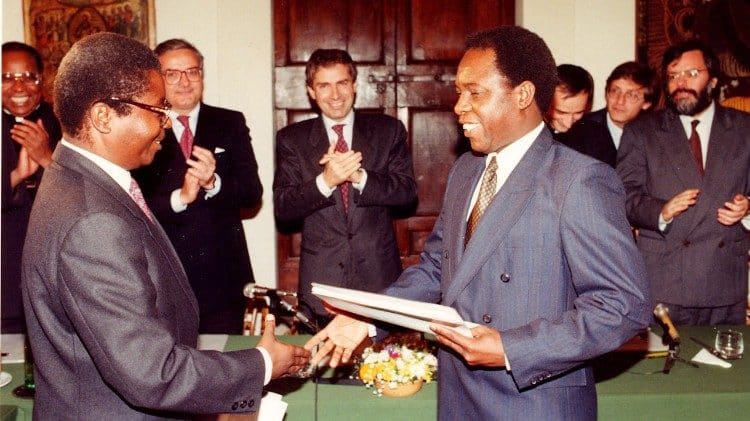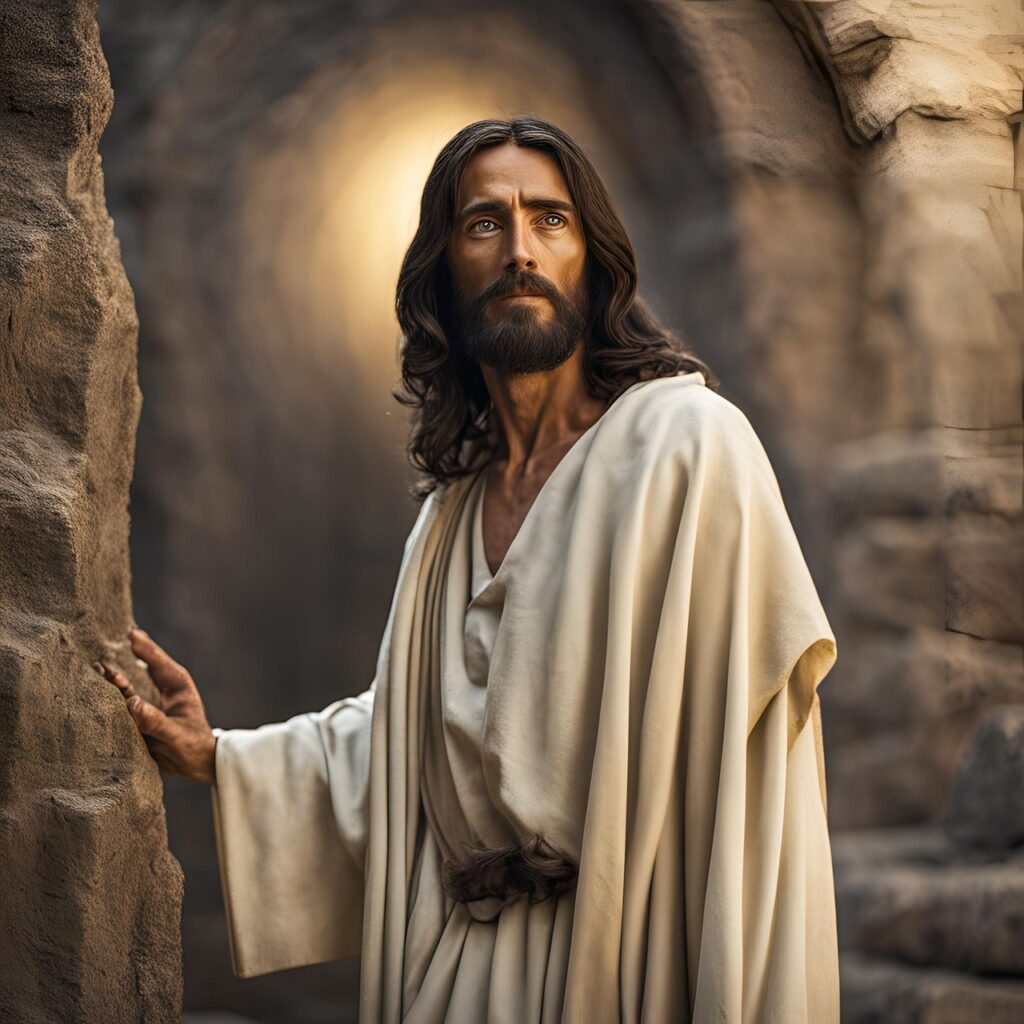Sant’Egidio: 30 years after the signing of the agreement that ended the civil war
A reminder to all, "Peace is Always Possible"

On 4 October 1992, in Rome, Joaquim Chissano, Mozambican president and secretary of FreLiMo, and Afonso Dhlakama, leader of ReNaMo, signed a General Peace Agreement that put an end to 16 years of civil war, with 1 million dead and over 4 million refugees. The signing concluded a long negotiation process that took place in Rome at the headquarters of the Community of Sant’Egidio. In the ancient Trastevere monastery, Andrea Riccardi, founder of the Community, Matteo Zuppi, now cardinal and president of the Italian Bishops’ Conference, Jaime Gonçalves, archbishop of Beira, who died in 2016, together with Mario Raffaelli, representative of the Italian government, had patiently woven a dialogue with the belligerents for more than two years in Rome (since July 1990). The then UN Secretary General, Boutros-Ghali, spoke of an ‘Italian formula’ to describe the Community’s ‘peace-building activity’, ‘unique in its kind’ because it was made up of ‘techniques characterised by confidentiality and informality’.
Today, 4 October 2022, we celebrate thirty years of a peace achieved through a hitherto unexplored method. Cardinal Matteo Zuppi recalled the event with these words, during his recent visit to Maputo: ‘For the Community of Sant’Egidio, the sufferings of the people of Mozambique were not sufferings to which we could remain indifferent. Knowing the reality and the problems of the country, a story of relationships and encounters began… since then, the conviction was born in us that peace is always possible and is in the hands of each one”. And it is the conviction that nourishes the entire Community of Sant’Egidio even in the painful time of war that we are currently experiencing. Andrea Riccardi comments: “On that day, Mozambique saw the spring of peace emerge. This memory is today an inspiration, a hope in a world that has resigned itself to war and speaks a language of war. In Ukraine in an increasingly serious, worrying way. In Syria, Ethiopia and elsewhere. This world cures disease but does not cure the terrible pandemic of war’.
The example of Mozambique also tells us how, thanks to a reconquered peace, a nation that was among the poorest in Africa and the entire planet has been able to recover and work on its economic and social growth all these years.
Thirty years after the Rome agreements, the threat to this country today is of a very different kind from that of 30 years ago, due to jihadist terrorist attacks, which in the northern provinces have already displaced over 900,000 people. Sant’Egidio – which now has thousands of people of all ages in the country – with its Schools of Peace, the ‘Dream’ programme for the care of AIDS patients and ‘Bravo’ for the registry office registration of minors, has already been active for some time in responding to the growing demand for help from internally displaced persons in the regions of Cabo Delgado, Nampula, Niassa, Zambesia, and Sofala, and invites everyone not to forget Mozambique.
Related

Reflection by Bishop Enrique Díaz: The Lord’s mercy is eternal. Alleluia
Enrique Díaz
27 April, 2025
5 min

After Eight Days Jesus Arrived: Commentary by Fr. Jorge Miró
Jorge Miró
26 April, 2025
3 min

The Perspectivas del Trabajo Foundation is founded with the aim of promoting virtues for professional development
Exaudi Staff
25 April, 2025
2 min

Reflection by Bishop Enrique Díaz: Alleluia, alleluia
Enrique Díaz
20 April, 2025
5 min
 (EN)
(EN)
 (ES)
(ES)
 (IT)
(IT)

